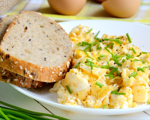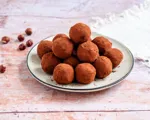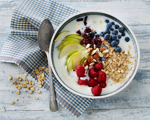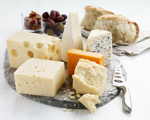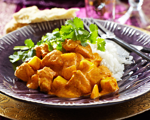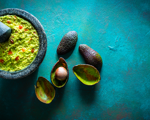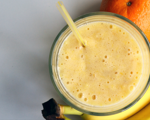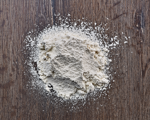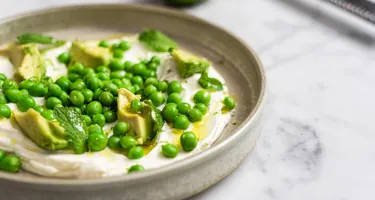
What is pea protein?
Pea protein is a plant-based protein derived from yellow peas or split peas. It offers a plant-based alternative to traditional animal-based protein sources like whey or casein, which makes it particularly appealing to those who follow, for example, a vegetarian diet.
Pea protein is incredibly versatile, and in its powdered form, it is often used in smoothies and shakes. It can also be added to most other recipes if you are looking to increase the protein content of a meal.
For more information about plant-based protein alternatives, check out our articles on protein sources for vegetarians and high-protein vegetables.
Types of pea protein and how they are made
Pea protein is made in two different ways.
Pea protein concentrate:
Mature yellow peas are milled into a pea flour, which is then separated into two: a protein enriched and a starch enriched fraction using something called air classification. This method takes advantage of the fact that pea protein and starch particles differ in size and density.
Pea protein Isolate:
Mature yellow peas are milled into a pea flour which is then mixed with slightly alkaline water to dissolve it. This step removes much of the starch, fiber, and other pea solids.
The next step is for the solution to be acidified, which causes the pea protein to separate even further from the other components in the original pea flour. Finally, the pea protein is dried into a fine powder.

Is pea protein a complete protein?
No, pea protein is not considered a complete protein . Other plant-based proteins include rice protein, bean protein, and lentil protein.
Pea protein in foods
Pea protein has become a popular and versatile ingredient, finding widespread use in a diverse range of products and meals, including burgers, sausages, bars, and shakes.
Apart from the nutritional addition, pea protein also contributes to the overall texture and mouthfeel. This means that the experience of plant-based alternatives with pea protein resembles the traditional meat variations in terms of texture and general consistency. In addition, it has a mild and neutral flavour, which makes it easy to add to various dishes without altering the original flavour profile. It is, among other things, often used in baking, bars, and smoothies.
Pea protein vs whey protein
The main difference between pea and whey protein is their sources. Pea protein is plant-based, while whey protein is animal-based. The latter derives from cow’s milk, more specifically the liquid by-product from cheese production. Read more about whey protein or animal-based protein.
Pea protein vs soy protein
Pea and soy are popular plant-based protein sources. Pea protein from isolate typically consists of around 80 % protein, while soy protein comes from soybeans and has a higher content of up to 90 %. Both are easy to incorporate, in their powdered form, into your everyday cooking. Read more about soy protein.

Related Articles
Want to understand different types of protein? Here's everything you need to know:






